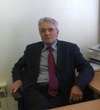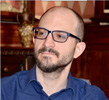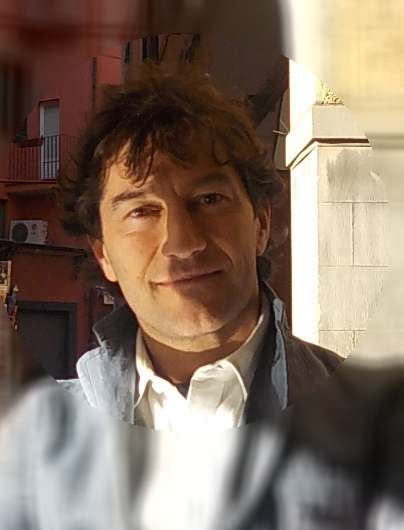Studying at the University of Verona
Here you can find information on the organisational aspects of the Programme, lecture timetables, learning activities and useful contact details for your time at the University, from enrolment to graduation.
Academic calendar
The academic calendar shows the deadlines and scheduled events that are relevant to students, teaching and technical-administrative staff of the University. Public holidays and University closures are also indicated. The academic year normally begins on 1 October each year and ends on 30 September of the following year.
Course calendar
The Academic Calendar sets out the degree programme lecture and exam timetables, as well as the relevant university closure dates..
| Period | From | To |
|---|---|---|
| Sem. IA (31.10.16 sosp.lezioni) | Oct 3, 2016 | Nov 12, 2016 |
| Sem. IB | Nov 14, 2016 | Jan 21, 2017 |
| Sem. IIA | Feb 27, 2017 | Apr 22, 2017 |
| Sem. IIB | Apr 24, 2017 | Jun 10, 2017 |
| Session | From | To |
|---|---|---|
| Sessione Estiva | Jun 12, 2017 | Jul 29, 2017 |
| Sessione Autunnale | Aug 21, 2017 | Sep 23, 2017 |
| Sessione Straordinaria | Jan 22, 2018 | Feb 24, 2018 |
| Session | From | To |
|---|---|---|
| Sessione Estiva | Jul 10, 2017 | Jul 15, 2017 |
| Sessione Autunnale | Dec 18, 2017 | Dec 21, 2017 |
| Sessione Invernale | Mar 23, 2018 | Mar 29, 2018 |
| Period | From | To |
|---|---|---|
| Festa di Ognissanti | Nov 1, 2016 | Nov 1, 2016 |
| Festa dell'Immacolata | Dec 8, 2016 | Dec 8, 2016 |
| Vacanze Natalizie | Dec 23, 2016 | Jan 7, 2017 |
| Vacanze Pasquali | Apr 14, 2017 | Apr 18, 2017 |
| Festa della liberazione | Apr 25, 2017 | Apr 25, 2017 |
| Festa dei Lavoratori | May 1, 2017 | May 1, 2017 |
| Festa del Santo Patrono - San Zeno | May 21, 2017 | May 21, 2017 |
| Festa della Repubblica | Jun 2, 2017 | Jun 2, 2017 |
| Vacanze Estive | Aug 14, 2017 | Aug 19, 2017 |
Exam calendar
Exam dates and rounds are managed by the relevant Humanistic Studies Teaching and Student Services Unit.
To view all the exam sessions available, please use the Exam dashboard on ESSE3.
If you forgot your login details or have problems logging in, please contact the relevant IT HelpDesk, or check the login details recovery web page.
Should you have any doubts or questions, please check the Enrollment FAQs
Academic staff
 cristina.bertazzoni@univr.it
cristina.bertazzoni@univr.it
 donato.desilvestri@univr.it
donato.desilvestri@univr.it

Longo Mario
 mario.longo@univr.it
mario.longo@univr.it
 045 8028393
045 8028393
 federico.melotto@univr.it; federicomelotto@hotmail.com
federico.melotto@univr.it; federicomelotto@hotmail.com

Migliorati Lorenzo
 lorenzo.migliorati@univr.it
lorenzo.migliorati@univr.it
 045802 8135
045802 8135
 andrea.nicolini.uni@gmail.com - andrea.nicolini@univr.it
andrea.nicolini.uni@gmail.com - andrea.nicolini@univr.it
 igor.pelgreffi@univr.it
igor.pelgreffi@univr.it
 stefania.pontrandolfo@univr.it
stefania.pontrandolfo@univr.it
 pieralberto.porcedducilione@univr.it; pierre_pordd@yahoo.it
pieralberto.porcedducilione@univr.it; pierre_pordd@yahoo.it
 045 8028732
045 8028732
Study Plan
The Study Plan includes all modules, teaching and learning activities that each student will need to undertake during their time at the University.
Please select your Study Plan based on your enrollment year.
1° Year
| Modules | Credits | TAF | SSD |
|---|
Cultural Anthropology
Developmental and educational psychology
Sociology and analysis of social dynamics
History of Philosophy
History of Education and Pedagogy
A course to be chosen among the following2° Year activated in the A.Y. 2017/2018
| Modules | Credits | TAF | SSD |
|---|
Teaching methodology and educational planning
Early Childhood Education
Theories and methods of cultural mediation
Computer Science and Multimedia
A course to be chosen among the followingA course to be chosen among the followingSocial and Cultural Geography
A course to be chosen among the following3° Year activated in the A.Y. 2018/2019
| Modules | Credits | TAF | SSD |
|---|
A course to be chosen among the followingA course to be chosen among the followingTheories and techniques of the primary socialization
A course to be chosen among the following| Modules | Credits | TAF | SSD |
|---|
Cultural Anthropology
Developmental and educational psychology
Sociology and analysis of social dynamics
History of Philosophy
History of Education and Pedagogy
A course to be chosen among the following| Modules | Credits | TAF | SSD |
|---|
Teaching methodology and educational planning
Early Childhood Education
Theories and methods of cultural mediation
Computer Science and Multimedia
A course to be chosen among the followingA course to be chosen among the followingSocial and Cultural Geography
A course to be chosen among the following| Modules | Credits | TAF | SSD |
|---|
A course to be chosen among the followingA course to be chosen among the followingTheories and techniques of the primary socialization
A course to be chosen among the following| Modules | Credits | TAF | SSD |
|---|
Legend | Type of training activity (TTA)
TAF (Type of Educational Activity) All courses and activities are classified into different types of educational activities, indicated by a letter.
Theories and methods of cultural mediation [Cognomi M-Z] (2017/2018)
Teaching code
4S003486
Teacher
Coordinator
Credits
6
Language
Italian
Scientific Disciplinary Sector (SSD)
M-PED/01 - PEDAGOGY, THEORIES OF EDUCATION AND SOCIAL EDUCATION
Period
Sem. IB dal Nov 13, 2017 al Jan 20, 2018.
Learning outcomes
Course aims
The course hopes to offer three cultural perspectives with the goal of orienting pedagogical approaches towards children and their families.
The first perspective concerns the ability to "situate" oneself in both a geopolitical and historical worldview as well as starting from One's Self.
The second will aid in developing sensitivities to the risks of racialization in childhood educational contexts.
The third will focus on the practice of cultural mediation when negotiating important contrasting educational modalities for boys and girls.
Educational aims
At the end of the course the student must be able to:
1 ) To learn to situate oneself in both a geopolitical viewpoint as well as in one's own conceptions of Immigrant, Foreigner, Family, Motherhood and Fatherhood.
2) To contextualize one's own role as educator, to be able to detect critical situations between parents and children (0-11years), and between families and institutions.
3) To be familiar with the principal theoretical models of Cultural Mediation in order to identify educational paths that take linguistic and cultural family dynamics into account.
4) To learn to identify and nourish the educational resources of the families and communities concerned.
Program
Contents:
1) Introduction to decolonial thought
2) Cultural Mediation: theories and methods
3) Childhood educational paths with Cultural Mediation
The theoretical part will be tied to real world contexts in educational services, core social services and the analysis of concrete situations involving children and their parents.
Didactic methods: frontal instruction; small-group research; in-depth seminars. Identification of qualitative tools for the revision and communication of feedback about the course experience. Cultural mediators, ethnographers, educational service experts specialized in multicultural contexts will take part in the instruction of the course.
Throughout the academic year, the dates and times of reception are also indicated on my webpage (without the need to set a specific appointment).
It will be placed on the teaching-learning platform and the lessons calendar, and teaching materials related to the program.
Study texts
1) Gennaro Ascione (a cura), America latina e modernità. L’opzione decoloniale: saggi scelti, Edizioni Arcoiris, 2014, (studiare da pag. 73 a pag 96 e da pag. 151 a pag. 170). Reperibile in: http://www.lavoroculturale.org/america-latina-e-modernita/
2) Adrienne Rich, La politica del posizionamento, reperibile in: http://www.medmedia.it/review/numero2/it/art3.htm
3) Donna Haraway, Manifesto cyborg. Donne, tecnologie e biopolitiche del corpo. Traduzione di L. Borghi, Feltrinelli – SOLO IL CAPITOLO “Saperi situati: la questione della scienza nel femminismo e il privilegio di una prospettiva parziale”.
4) Cima Rosanna, Abitare le diversità, Carocci 2005
5) Rosanna Cima, Rita Finco, Imparare e insegnare tra lingue diverse, La Scuola 2014. (studiare da pag. 5 a pag. 88)
A choice between these texts:
1) Elena Gianini Belotti, Dalla parte delle bambine. L’influenza dei condizionamenti sociali nella formazione del ruolo femminile nei primi anni di vita (qualsiasi edizione)Un libro a scelta
2) Vanessa Maher (a cura di), Genitori migranti, Rosemberg & Sellier, 2012
3) Paola Tabet, La pelle giusta, Einaudi, 1997.
4) Rosita Deluigi, Tracce migranti e luoghi accoglienti. Sentieri pedagogici e spazi educativi, Pensa Multimedia, 2012.
5) Tahar Ben Jelloun, Le pareti della solitudine, Einaudi.
6) Fatima Mernissi, La terrazza proibita. Vita nell’harem, Giunti.
| Author | Title | Publishing house | Year | ISBN | Notes |
|---|---|---|---|---|---|
| Cima Rosanna | Abitare le diversità. Pratiche di mediazione culturale: un percorso fra territorio e istituzioni | 2009 | |||
| Ascione Gennaro | America latina e modernità. L’opzione decoloniale: saggi scelti | Arcoiris | 2014 | studiare da pag. 73 a pag 96 e da pag. 151 a pag. 170). Reperibile in: http://www.lavoroculturale.org/america-latina-e-modernita/ | |
| Rich Adrienne | La politica del Posizionamento | 2006 | reperibile in: http://www.medmedia.it/review/numero2/it/art3.htm | ||
| Haraway Donna | Manifesto cyborg. Donne, tecnologie e biopolitiche del corpo. | Feltrinelli | 1999 | SOLO IL CAPITOLO “Saperi situati: la questione della scienza nel femminismo e il privilegio di una prospettiva parziale”. |
Examination Methods
There will be a final written exam FOR ALL STUDENTS consisting of "open answer" and multiple choice questions regarding obligatory texts. An open question on the chosen text.
The final evaluation is expressed in 30/30.
ERASMUS students are requested to contact the teacher at the beginning of the courses to agree on the teaching and examination procedures together.
Type D and Type F activities
Modules not yet included
Career prospects
Module/Programme news
News for students
There you will find information, resources and services useful during your time at the University (Student’s exam record, your study plan on ESSE3, Distance Learning courses, university email account, office forms, administrative procedures, etc.). You can log into MyUnivr with your GIA login details: only in this way will you be able to receive notification of all the notices from your teachers and your secretariat via email and soon also via the Univr app.
Graduation
Documents
| Title | Info File |
|---|---|
|
|
pdf, it, 99 KB, 13/10/23 |
|
|
pdf, it, 101 KB, 10/04/24 |
List of theses and work experience proposals
| theses proposals | Research area |
|---|---|
| Ambienti e contesti di lavoro con minori | Various topics |
| Analisi dei personal network di sostegno | Various topics |
| comunicazioni relative alla tesi | Various topics |
| Il teatro come contesto educativo | Various topics |
| I processi di globalizzazione culturale nella società contemporanea | Various topics |
| La social network analysis applicata allo studio dei contesti educativi | Various topics |
| L'educatore ed i progetti europei | Various topics |
| L'impegno associativo in ambito educativo | Various topics |
| Politiche sociali e contesti educativi | Various topics |
| Progetti di collaborazione con le istituzioni scolastiche | Various topics |
| PROPOSTE TESI AMBITO GEOGRAFICO | Various topics |
| Scuola e capitale sociale | Various topics |
Linguistic training CLA
Gestione carriere
Student mentoring
Practical information for students
Documents
| Title | Info File |
|---|---|
|
|
pdf, it, 325 KB, 02/05/23 |
|
|
pdf, it, 212 KB, 02/05/23 |
|
|
pdf, it, 131 KB, 02/05/23 |
Stage e Tirocini
Le ulteriori attività formative (crediti F) sono interamente coperte dall’attività di tirocinio “indiretto” (1 cfu) da svolgersi nel secondo anno e di tirocinio “diretto” (14 cfu) da svolgersi presso enti convenzionati per un numero complessivo di 15 cfu (375 ore). Chi è iscritta/o al curriculum servizi per l’infanzia è tenuta/o a svolgere il tirocinio presso nidi e servizi per la prima infanzia per almeno il 50% delle ore.
Il tirocinio professionalizzante (375 ore, pari a 15 cfu), è obbligatorio sia nella sua forma diretta che indiretta.
Il tirocinio indiretto, della durata di 25 ore a frequenza obbligatoria al 75%, si svolge in Università per 20 ore e in forma di lavoro individuale per 5 ore e consiste in un accompagnamento iniziale delle/degli studenti da parte dei tutor attraverso un percorso formativo dotandoli di conoscenze e strumenti adeguati a osservare, comprendere e rielaborare criticamente l’esperienza di tirocinio nei servizi educativi e ad affrontare il tirocinio negli enti con metodo e consapevolezza. Il percorso, da attuare in gruppi da 20-25 persone sotto la supervisione di un tutor, risponde alle esigenze costantemente espresse sia dalle/dagli studenti stessi sia dalle parti sociali che dai referenti degli enti convenzionati.
Il tirocinio diretto si propone di raggiungere i seguenti obiettivi:
- fare esperienza diretta di attività professionali, che richiedono un livello di preparazione al lavoro educativo;
- approfondire in particolare il rapporto tra preparazione teorica, acquisita mediante lo studio, ed esperienza pratica, tra mondo del sapere e della cultura e mondo del lavoro e delle professioni;
Al termine del tirocinio diretto lo studente deve presentare una relazione scritta, nella modalità concordata con il tutor accademico.
Nuove Linee Guida per il tirocinio di Scienze dell'educazione.
- Tutte le informazioni in merito agli stage per futuri studenti sono disponibili alla pagina Stage e tirocini.
- Tutte le informazioni in merito agli stage per studenti iscritti sono pubblicate in MyUnivr - come fare per - stage e tirocini.
- Tutte le informazioni in merito agli stage per le aziende sono disponili alla pagina Stage e tirocini per azienze.
Documents
| Title | Info File |
|---|---|
|
|
pdf, it, 302 KB, 16/07/21 |























